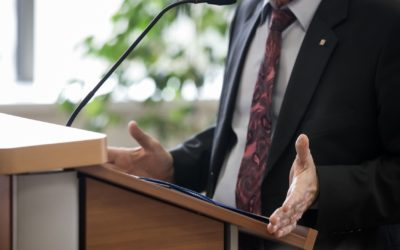The federal D.C. Court of Appeals just ruled that the Seminole Tribe has a monopoly on internet sports betting in Florida. The legal gambling world is abuzz about whether this means every tribe in America can now operate online sports books and take bets from gamblers not on Indian land.
Will the U.S. Supreme Court hear the case, and, if so, will it affirm or reverse?
I’ve been approached by people with, let us say, “significant” interests in these questions. These include organizations with hundreds of millions of dollars at stake.
For example, “What does this decision mean for potential sports betting in [the big prize:] California?”
My take on the decision is:
1) It is obviously wrong;
2) It won’t change a thing in California or most other states, except to add an extra element of confusion; and
3) The SCOTUS will not hear the case, for political reasons.
I know most commentators disagree with me. But I have spent a lot of time on this issue, including testifying before the U.S. Senate Indian Affairs Committee.
The Florida case is complicated. The federal District Court ruled that the state and tribe could not enter into a compact allowing the Seminoles to take sports bets from anyone in Florida, simply by putting the servers on their reservations. A competing Florida casino sued the Secretary of Interior for allowing the compact to go into effect.
The District Court read the explicit language of the Indian Gaming Regulatory Act: “Over a dozen provisions in IGRA regulate gaming on ‘Indian lands,’ and none regulate gaming in another location.” And cited the Supreme Court’s precedent: “Everything — literally everything — in IGRA affords tools . . . to regulate gaming on Indian lands, and nowhere else.”
But the Appeals Court decided some catch-all language buried in IGRA showed Congress actually wanted Tribal-State compacts to cover off-reservation gambling:
“25 U.S.C. § 2710
. . . .
(d)
. . . .
(3) (A) Any Indian tribe having jurisdiction over the Indian lands upon which a class III gaming activity is . . . to be conducted, shall request a compact . . .
. . . .
(C) Any Tribal-State compact negotiated under subparagraph (A) may include provisions relating to –
. . . .
(vii) any other subjects that are directly related to the operation of gaming activities. [Emphasis added.]
The Court ruled that any other subjects includes off-reservation sports betting, even though even this residual provision clearly only applies to gaming activity conducted on Indian land.]
The competitor casino contended that reading this “catch-all” provision to mean Congress hid a massively important provision – authorizing Tribal-State compacts for off-reservation gambling – in a minor residual clause buried in a statute otherwise devoted entirely to gambling on Indian land. It argued that this violated “the canon that Congress does not hide elephants in mouseholes.”
Here’s the Court of Appeals response:
“We disagree.”
But it doesn’t matter that this Court decided that IGRA allows the Secretary of Interior to approve compacts for off-reservation gambling. The decision does not bind any state nor any tribe, not even Florida nor the Seminoles, neither of whom were parties to the suit. Further, the Court itself made it clear the issue depends entirely upon state law, not IGRA.
Florida state courts will now have to decide whether a compact allowing sports betting anywhere in the state is OK. The Florida Constitution was amended in 2018 to give the voters alone, not the Governor and State Legislature, the power to expand “casino gambling,” defined as “any of the types of games typically found in casinos and that are within the definition of Class III gaming in IGRA.” Is an Internet sports book, like those found in casinos in Las Vegas and Atlantic City and New York’s Class III Indian casinos, “casino gambling”?
In California and other states, the question remains political, not legal. Gavin Newsom is not about to sign compacts with the Golden State’s 108-plus tribes. And even if he does, the state’s racetracks and cardrooms, and their employee unions and powerful friends in the State Legislature, are not going to allow tribes to have a multi-billion-dollar monopoly.
As for the SCOTUS: We know the super-majority of extreme conservatives on the Court are willing to twist the law to get the results they want. But what they want is states’ rights. And occasionally, as in the Tigua case I worked on, a slim majority of five Justices will support Indian rights.
The Court of Appeals decision allowed a compact, entered into freely by the state of Florida and Seminole Tribe, to go forward. This is exactly the type of result the Roberts’ Court likes. So, there is no reason for them to review the decision just because it was wrong legally.
And if the SCOTUS does take the appeal, the justices will be stepping into the very messy question of whether a state legislature can create the legal fiction that a sports bet, or any other wager, can be “deemed” to take place where the computer server is located.
It’s a good bet the justices would rather stick to something easy, like gun control.
© Copyright 2023, all rights reserved worldwide. Gambling and the Law® is a registered trademark of Professor I. Nelson Rose, www.GamblingAndTheLaw.com.





0 Comments